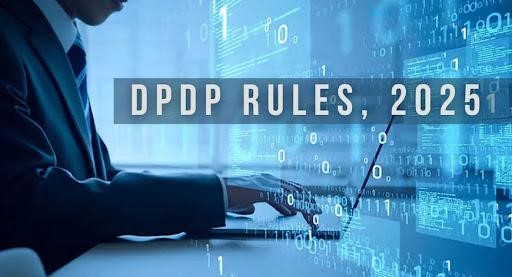Draft Digital Personal Data Protection Rules, 2025 Unveiled
why in the news?
The Government of India has released the draft Digital Personal Data Protection Rules, 2025, to operationalize the DPDP Act, 2023. Feedback is invited from citizens and stakeholders until February 18, 2025, via the MyGov platform.
Introduction:
- The draft rules operationalize the Digital Personal Data Protection Act, 2023 (DPDP Act) to safeguard citizens’ rights and protect personal data.
- They emphasize a balance between regulation and innovation, addressing challenges such as data breaches, unauthorized use, and digital harms.
- A citizen-centric approach empowers individuals to manage their data while fostering trust in the digital ecosystem.
Key Features:
- Empowering Citizens:
- Data Fiduciaries must provide clear, accessible information about data processing.
- Citizens can exercise rights like data erasure, appoint digital nominees, and access grievance mechanisms.
- Parents and guardians are empowered to ensure children’s online safety.
- Innovation-Friendly Framework:
- Encourages economic growth while protecting personal data.
- Simplified compliance for startups and small businesses with graded responsibilities for Significant Data Fiduciaries.
- Transition periods ensure smooth adaptation for businesses.
- Digital-First Governance:
- Consent mechanisms and grievance redressal processes are “born digital.”
- A digital Data Protection Board ensures quick, transparent complaint resolutions, minimizing physical presence.
Inclusive Approach and Awareness
- Drafted with inputs from stakeholders and global best practices, reflecting principles of the DPDP Act.
- Feedback from the public is invited on the MyGov platform until February 18, 2025.
- Awareness campaigns will educate citizens about their rights and responsibilities under the new framework.
- Demonstrates India’s commitment to securing data protection while fostering innovation and inclusive growth.
About DPDP Act, 2023:
- Background:
- 2011: Justice AP Shah Committee recommended privacy legislation.
- 2017: Supreme Court declared privacy a fundamental right (Justice KS Puttaswamy case).
- Scope: Covers digital personal data processing in India.
- Framework:
- Obligations for Data Fiduciaries.
- Consent required except for legitimate uses (e.g., emergencies).
- Mandatory parental/guardian consent for children or disabled individuals.
- Enforcement:
- Data Protection Board with civil court powers.
Sources Referred:
PIB, The Hindu, Indian Express, Hindustan Times




